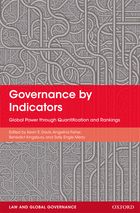Taking UNFCCC Norms Seriously
Darrel Moellendorf (Goethe Universität, Frankfurt, Normative Orders)
We are urgently in need of a comprehensive climate change mitigation treaty. This urgency affects the kind of moral guidance we should expect and can reasonably propose to others. Insofar as nonideal theory is dependent on an account of ideal theory which it serves, I argue that nonideal theory is ill-suited to offer practical moral guidance in this situation. That view does not entail, however, that climate change policy must be either morally blind or governed simply by a norm of efficiency. Instead, I argue that the United Framework Convention on Climate Change (UNFCCC) is an important source of moral norms. There are very good normative and prudential reasons to take these norms seriously. The normative background provided by the treaty is a significant good for the collective effort of international cooperation. But also given the likely costs if the force of the background to become significantly weakened, it is reasonable for each state to want to see the UNFCCC remain in force and therefore also not to erode it through non-compliance. The strongest moral reasons to comply with the norms of the UNFCC, however, are the promissory obligation that a state assumes by ratifying the convention and the duty of fairness in an international system of energy use and climate change mitigation expressed by commitment to the right to sustainable development.
Discussant: Margaux Le Donné (Sciences Po)
Lieu: Sciences Po, Ecole doctorale, salle de réunion
199 blvrd St. Germain, 3ème étage


